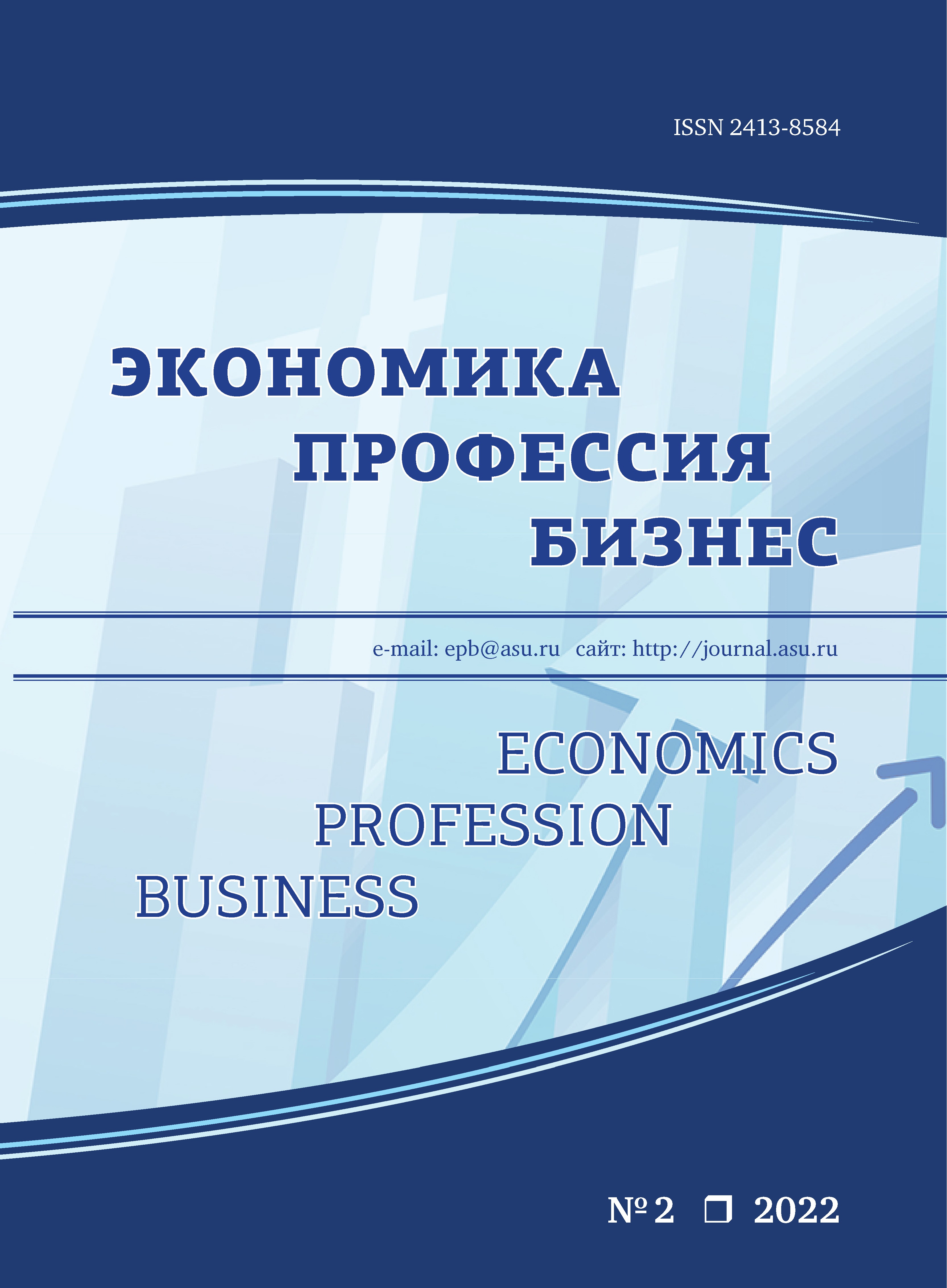TAX ECOSYSTEM AS A DIGITAL ECONOMY ELEMENT: A SYSTEM-INTEGRAL APPROACH TO CONSTRUCTION
УДК 336.221
Abstract
The article is devoted to the development prospects of the Russian tax system as a digital economy element. It continues the previously published author’s developments and touches upon the problem of the formation of the tax ecosystem. Taking into account the existing domestic and foreign school of system analysis, a system-integral approach to the construction of a hypothetical model of such a system is proposed. For this, three research strata have been identified: systemic, platform, integral-technological. The filling of the hypothetical model of the tax ecosystem (GMNE) in a symbolic form is outlined. Author’s definitions of two concepts are offered: tax ecosystem, digital ecosystem platform. Moreover, the second concept is disclosed in the context of 12 meaningful representations of the model. The instrumental and technological support of the GMNE is systematized in each supporting subsystem of the model.
Directions for the formation and improvement of certain types of support are indicated. A working version of the GMNE is described, which allows you to start developing a simulation model for the purpose of designing, analyzing and evaluating the functioning of the tax ecosystem. Conclusions are drawn and proposals are formulated.
Downloads
Metrics
References
Викторова Н. Г., Евстигнеев Е. Н. Налоговая экосистема в контексте инновационно-технологических преобразований экономики // Белорусский экономический журнал. 2021. № 2 (95). С. 36-45.
Ильинский А. И. Агентное моделирование развития сложной налоговой экосистемы в случае размывания налоговой базы при внедрении Suptech и Regtech // Хроноэкономика. 2021. 4 (32). С. 62-65.
Рукина С. Н., Денисова И. П. Характеристика структурных компонентов экосистемы налогового контроля // Инновационное развитие современного общества: актуальные вопросы теории и практики. Пенза, 2021. С. 48-50.
Волкова В. Н. Развитие определения системы // Материалы международной научно-практической конференции «Системный анализ в проектировании и управлении». СПб., 2001. С. 12-14.
Месарович М. Общая теория систем и ее математические основы // Исследования по общей теории систем: сб. переводов / под ред. В. Н. Садовского и Э. Г. Юдина. М., 1969. 520 с.
Многогранность современной пандемической реальности: коллективная монография / под ред. Е. С. Вылковой. СПб., 2021. 300 c.
Bertalanfy L. von. General System Theory — a Critical Review // General System. Vol. YII. 1962. Pp. 1-20.
Соколов Я. В., Соколов В. Я. История бухгалтерского учета: учебник. 3-e изд., перераб. и доп. М., 2009. 287 с.
Бабкин А. В., Куратова А. Классификация и характеристика цифровых платформ в экономике // Вектор экономики. URL: http://www.vectoreconomy.ru/images/publications/2018/12/innovationmanagement/Babkin_Kuratova.pdf (дата обращения: 08.01.2022).
Философский словарь / под ред. И. Т. Фролова. М., 1991, 560 с.
Что такое «Регуляторная гильотина»? URL: https://knd.ac.gov.ru/about/ (дата обращения: 12.01.2022).
REFERENCES
Viktorova N. G., Evstigneev E. N. Tax ecosystem in the context of innovative and technological transformations of the economy // Belarusian Economic Journal. 2021. No. 2 (95). Pp. 36-45.
Ilyinsky A. I. Agent-based modeling of the development of a complex tax ecosystem in the event of erosion of the tax base during the implementation of Suptech and Regtech // Chronoeconomics. 2021. 4 (32). Pp. 62-65.
Rukina S. N., Denisova I. P. Characteristics of the structural components of the ecosystem of tax control // In the collection: Innovative development of modern society: topical issues of theory and practice. Penza, 2021. Pp. 48-50.
Volkova V. N. Development of the system definition // International Scientific and Practical Conference «System Analysis in Design and Management». SPb., 2001. Pp. 12-14.
Mesarovich M. General theory of systems and its mathematical foundations // Research on general theory of systems: Sat. translations / ed. V. N. Sadovsky and E. G. Yudin. M., 1969. 520 p.
The versatility of modern pandemic reality: a collective monograph / ed. E. S. Vylkova. SPb., 2021. 300 p.
Bertalanfy L. von. General System Theory — a Critical Review // General System. Vol. YII. 1962. Pp. 1-20.
Sokolov Ya. V., Sokolov V. Ya. History of accounting: textbook. 3rd ed., revised. and additional. M., 2009. 287 p.
Babkin A. V., Kuratova A. Classification and characteristics of digital platforms in the economy // Economy Vector. URL: http://www.vectoreconomy.ru/images/publications/2018/12/innovationmanagement/Babkin_Kuratova.pdf (date of access: 08.01.2022).
Philosophical dictionary / ed. I. T. Frolova. M., 1991. 560 p.
What is the Regulatory Guillotine? URL: https://knd.ac.gov.ru/about/ (date of access: 12.01.2022).
Economics Profession Business is a golden publisher, as we allow self-archiving, but most importantly we are fully transparent about your rights.
Authors may present and discuss their findings ahead of publication: at biological or scientific conferences, on preprint servers, in public databases, and in blogs, wikis, tweets, and other informal communication channels.
Economics Profession Business (EPB) allows authors to deposit manuscripts (currently under review or those for intended submission to EPB) in non-commercial, pre-print servers such as ArXiv.
Authors who publish with this journal agree to the following terms:
- Authors retain copyright and grant the journal right of first publication with the work simultaneously licensed under a Creative Commons Attribution License that allows others to share the work with an acknowledgement of the work's authorship and initial publication in this journal.
- Authors are able to enter into separate, additional contractual arrangements for the non-exclusive distribution of the journal's published version of the work (e.g., post it to an institutional repository or publish it in a book), with an acknowledgement of its initial publication in this journal.
- Authors are permitted and encouraged to post their work online (e.g., in institutional repositories or on their website) prior to and during the submission process, as it can lead to productive exchanges, as well as earlier and greater citation of published work (See The Effect of Open Access).









